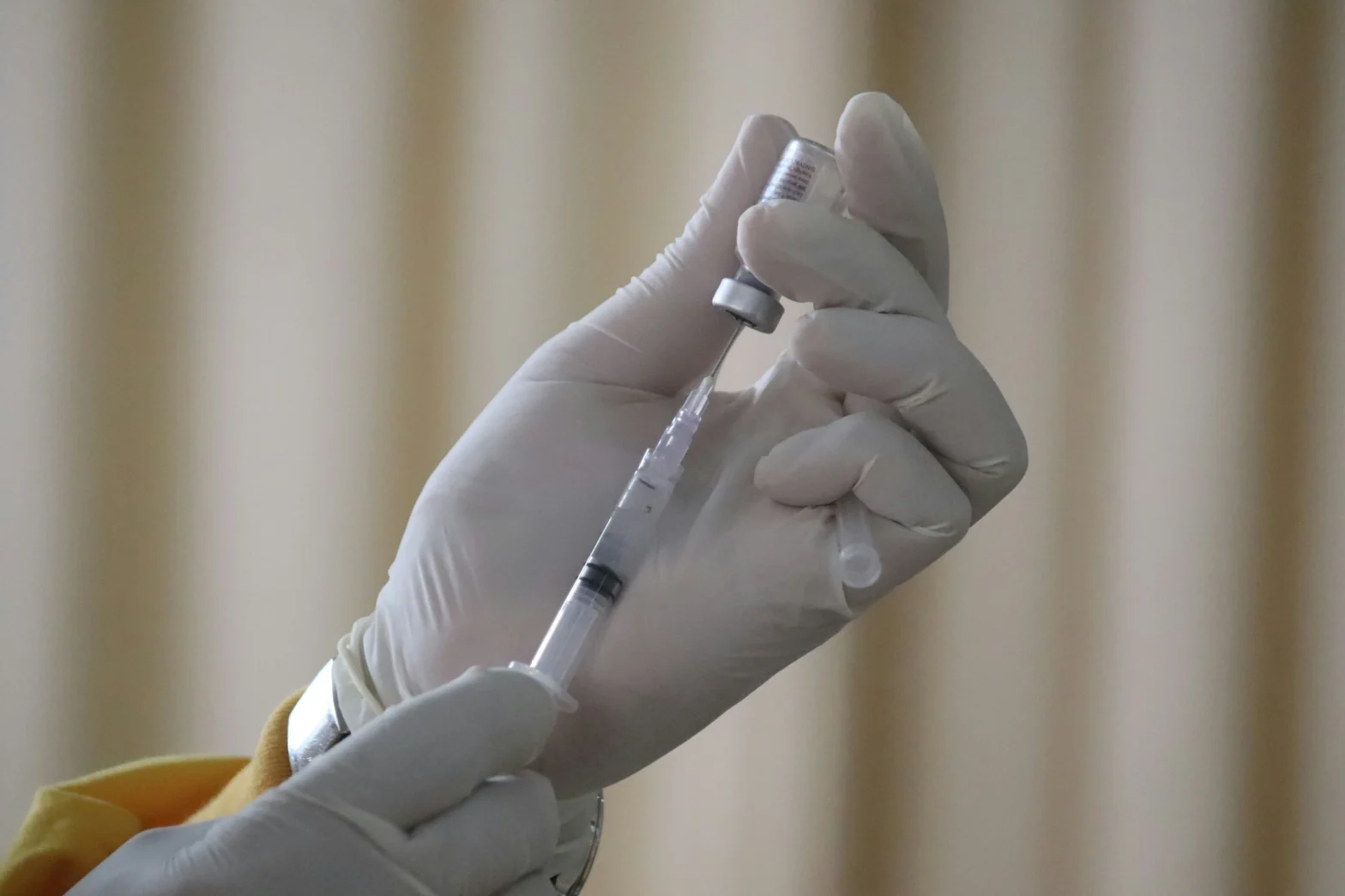Vaccines (immunizations) protect us from serious diseases and prevent their spread to others. Over the years, immunizations have prevented epidemics of once-common infectious diseases, such as measles and mumps, and nearly eradicated others, including polio and smallpox. Vaccines aren’t just for kids; adults need them to protect against diseases that become more common with age. They can also protect you if you missed a dose as a child. Some vaccines only need to be given once, while others require updates or “boosters.”
Immunizations are a weakened or killed virus, bacteria, or lab-made protein that imitates the virus to prevent infection. Vaccines trigger your body’s immune response, causing it to either produce antibodies to that particular disease or induce other processes that enhance immunity. Then, if you’re exposed to the disease-causing organism, your immune system is prepared to fight the infection. A vaccine usually prevents the onset of a disease or reduces its severity. Discuss with your doctor, healthcare provider, or pharmacist any vaccines you might need and which ones you should receive annually.
- Flu vaccine: Administered as a shot or nasal spray, it is given once a year from September through the end of the flu season, which can extend as late as May. The earlier you get it, the better your protection will be. Those over 65 can get a high-dose injection for better protection.
- Pneumococcal vaccine: There are two types available: one for children and adults, and another for older adults and individuals with certain medical conditions.
- Tetanus, Diphtheria, Pertussis (Tdap) vaccine: Administered as a single shot, Tdap protects against all three diseases (while the Td variant only protects against tetanus and diphtheria). Tdap is recommended for older children and adults; Td is usually given as a booster dose every 10 years.
- Hepatitis A vaccine: Given in two doses, with the second dose administered six months after the first. It is recommended for children (starting at 12 months) and those at increased risk.
- Hepatitis B vaccine: Administered as a series of three to four injections over a 6- to 12-month period, it is recommended for all infants, children, and adults.
- MMR (Measles, Mumps, Rubella) vaccine: Administered as a single dose to protect against all three viruses. The CDC recommends two doses of the MMR vaccine, administered four weeks apart.
- Varicella (Chickenpox) vaccine: Administered as a series of two shots, it protects against the varicella zoster virus, which causes chickenpox. It can be given at any time in two doses, four to eight weeks apart. This vaccine is made with live viruses, so it is not recommended for individuals with a weakened immune system due to a disease or medical treatments (such as steroids or chemotherapy).
- Meningococcal vaccine: Protects against four strains of meningococcal disease. Recommended for all preteens and teens, as well as children and adults at increased risk.
- Shingles (Zoster) vaccine: Given as a shot in two doses, two to six months apart, for all healthy adults over the age of 50 and any immunocompromised adults over 19 years of age. It can be over 90% effective in preventing shingles, and protection lasts approximately four to five years.
- HPV vaccine: Prevents infections caused by several types of HPV, which can lead to various health issues, including some types of cancer. It is recommended for children aged 11 or 12 (and up to age 26) and may also be recommended for those up to 45 years old.
- COVID-19 vaccine: This vaccine helps protect from severe illness, hospitalization, and death. Everyone six months and older should get the COVID-19 vaccine. Since the vaccine’s protection decreases over time, it is essential to receive additional boosters as recommended.
Vaccines are very effective at preventing disease, but they don’t work all the time. Most of the recommended childhood immunizations are 90-100% effective, according to the CDC. Although a child will not become fully immunized against a disease, those who have received the vaccine are 100% effective in protecting those who have not been fully immunized, thereby lessening everyone’s chance of exposure to the disease. Even in cases where a vaccine has not provided 100% immunity to your child, the symptoms will usually be milder than if they had not been immunized at all.
Today, vaccines are considered safe. As with any medication, they can have side effects. In most cases, these are mild. The most common minor reactions to an immunization are soreness or redness around the injection site and/or a low-grade fever. Side effects typically subside within a few days. In rare instances, a high fever or an allergic reaction to vaccines may occur. Ensure your doctor is aware of any allergies before administering any vaccines.
Although I realize that some people may not agree with vaccinations (which is a personal choice), most medical providers agree that the proven preventive benefits of vaccines far outweigh the minimal risks associated with their side effects.
On Sunday, May 18, from 7:30 AM to 12:30 PM, Kroger will host a vaccine clinic in the Gathering Space. Please bring your insurance card and ID. If you are interested in receiving any vaccine, please register with the parish office at 586-254-4433 or Marilyn Cito, Parish Nurse, at 586-254-4433 Ext. 320 or Marilync@stol.church. Walk-ins are also welcome.
References:


